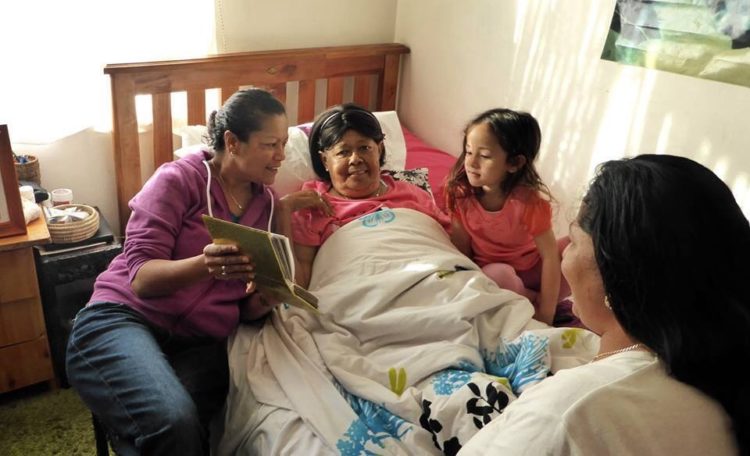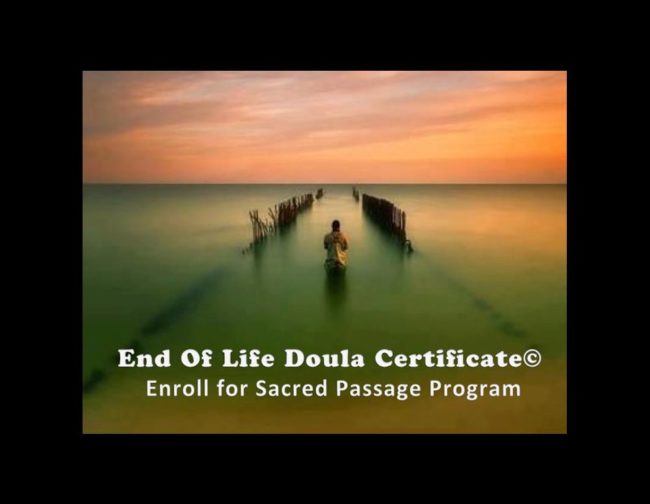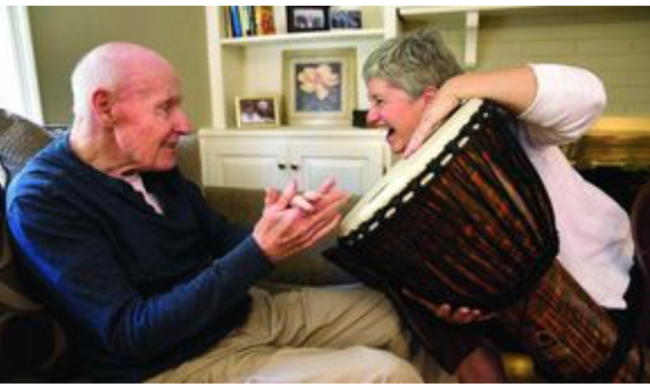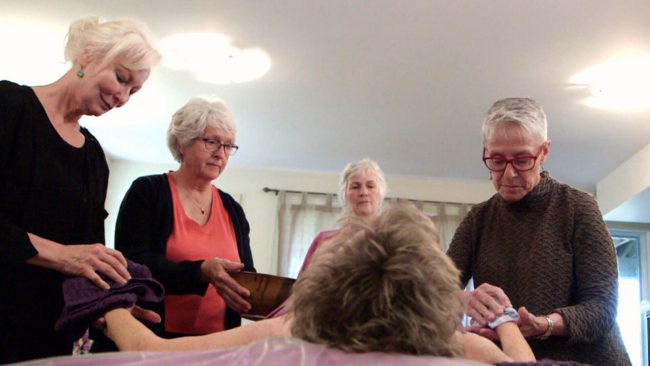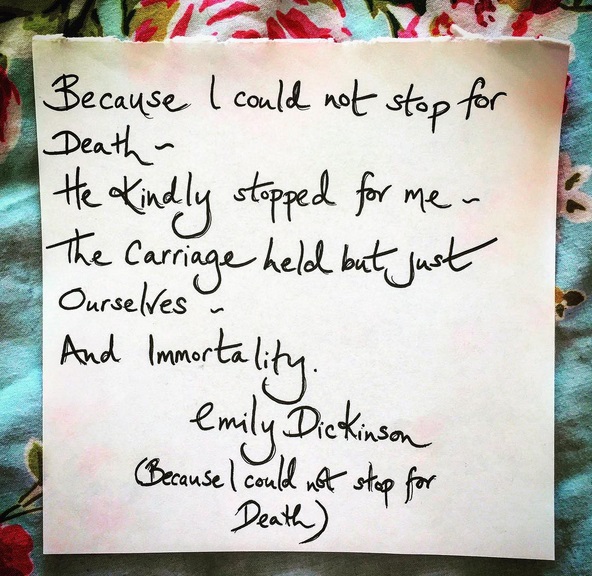No one wants to die, but what if there was a way to soften death, to make it less scary, to minimize regrets, and to make meaningful goodbyes? Enter death doulas, women and men trained to administer spiritual and practical support for the dying and their families.
While many folk traditions and cultures have ceremonies to usher the dying into the next world, contemporary Western society tends to medicalize death focusing on the physical decline with scant attention to the soul. Death doulas want to fill this void.
They regard themselves as spiritual guides for the dying and their families. They are committed to helping patients and their families experience a good death, ushering them into death with the same gentleness that birth doulas demonstrate delivering babies.
The American death doula program is relatively new, having been launched in 2003 by Henry Fersko-Weiss, a social worker who worked with Hospice before creating an end-of-life doula program. Typically doula training takes the form of an 8-week online course or an intensive weekend. The training is extensive, covering common terminal illnesses, pain management, the active dying process, interventions to ease patient suffering, writing advanced care directives and goodbye letters to family members, along with planning a memorial service or, following a current trend, a home funeral.
Like Hospice workers doulas offer a supportive, non-judgmental presence, but where Hospice offers time-restricted medical interventions, doulas are more available. A doula sees only one family at a time, allowing them to be present on a daily basis, if requested. Another way doulas differ from Hospice is in their continuing presence for the family post-death. Doulas offer support during a family’s grieving.
Francesa Arnoldy, director of a Vermont doula-training program, stressed that a doula’s focus is “less about outcome and more about helping the patient not to feel alone.”
Glenny Dunbar, a Portland, Maine doula, told me her job is to listen to what the patient and family want without imposing an agenda. Once she explains the range of options, it’s up to the patient and family to decide on an approach.
Glenny thinks of herself as a “death project manager,” assisting the patient to write an advanced care directive, plan a vigil, a home funeral, or memorial service. She offers assistance in creating a legacy through a scrapbook or writings that reflect how the patient wants to be remembered; she also supplies help writing goodbye letters to family members.
If a doula enters the scene when a patient is actively dying, her role may be something as simple as pulling up a chair next to the patient’s bed and holding a hand or reading aloud. Doulas typically fill in for family members who need a break. One doula pitched-in by giving the family dog a bath. Flexibility is the name of the game for doulas!
Francesca Arnoldy refers to the “doula heart” as the essence of the doula offering where loving-kindness eases the sting of death for the patient and the family.
Learning about death doulas had me wishing my family had hired one when my mother was dying. We were uncomfortable talking to her about dying. We didn’t respect the fact that dying is hard work and takes awhile. As she lay in a coma, we paced impatiently waiting for her end. If a doula had been present, we might have been more sensitive and understanding.
Now that I’ve been educated about death doulas I’m planning to hire a doula to help me refine my advanced care directives and assist with my goodbye letters and memorial service, not to mention the challenging task of talking to my adult children about my end of life preferences! It’s a bit daunting to plan my death but I welcome the support and guidance of a trained doula. It feels less scary knowing there is wise counsel available.
To find a death doula, consult your local Hospice or the website: inelda.org (International End of Life Doula Program). Doula fees tend to be reasonably priced.
